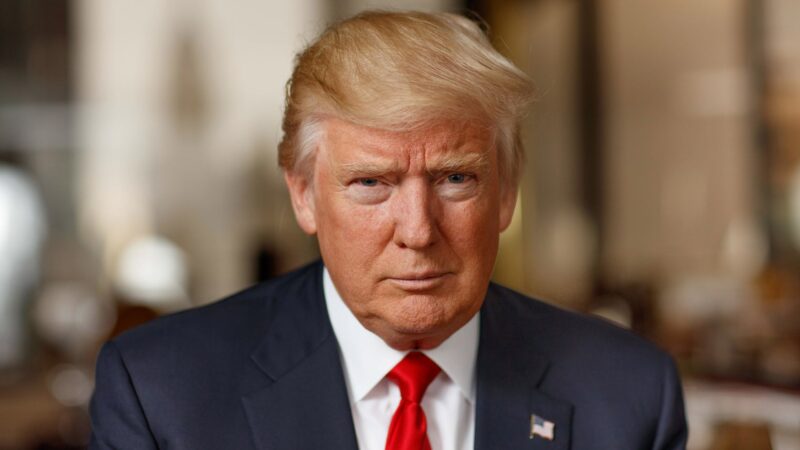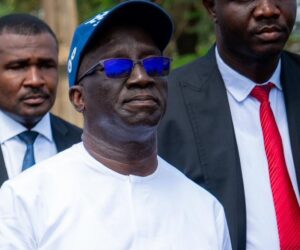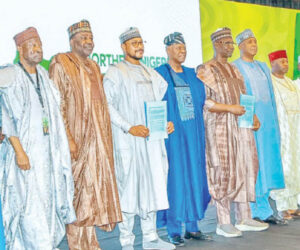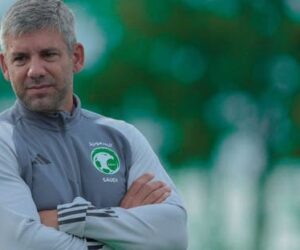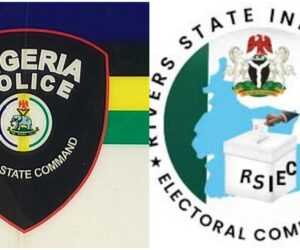The Islamic States has expressed concerns about the plan by US President Donald Trump to launch attacks in Nigeria, warning fighters of Islamic State West Africa Province (ISWAP) to be cautious.
The Islamic States conveyed this message on Thursday, in its weekly propaganda publication, Al-Naba. A copy of the message written in Arabic was sighted by our reporter and shared on Telegram channels by Conflict researchers.
Describing Mr Trump as a “reckless American tyrant,” according to an English translation of the message posted on X by jihadi expert Philip Brant, the terror group said the US President was influenced by Jews and Evangelical Christians in his administration.
The group said Mr Trump now sees himself as the “saviour” of Christians worldwide.
The group alleged that this religious bias was shaping Washington’s approach to conflicts in Africa and beyond.
It warned that such US intervention would not stop in Nigeria. It predicted that the Trump administration could extend its operations to the Democratic Republic of Congo (DRC) and Mozambique, where Christians have also suffered heavy casualties in jihadist-linked attacks.
The Islamic States has a strong presence in the DRC and Mozambique.
It described Mr Trump’s threats as part of his broader strategy to drag the United States into multiple, prolonged conflicts across various regions, including Iraq, Syria, Somalia, Afghanistan, and now parts of Africa.
Calling on Muslims across West Africa to “take these threats seriously,” Islamic States urged unity against what it termed “American Crusaders” and accused Western powers of ignoring what it called “Christian crimes against African Muslims.”
The group, however, instructed its fighters to take cover, avoid large gatherings and limit the use of smartphones, measures it said were necessary to evade possible US surveillance and strikes.
The advisory, it said, applies to all Islamic State branches, as it expects coordinated American military responses across regions.
The statement marks a clear sign yet that the Islamic State network in Africa is uneasy about renewed US attention to its activities, a shift analysts say could reshape militant operations and alliances across the Sahel and Lake Chad Basin.
Background
Mr Trump recently threatened to cut aid to Nigeria and order military strikes over what he described as a “Christian genocide” allowed by the Nigerian government.
Prior to the threats, President Trump designated Nigeria as “Country of Particular Concern” under America’s International Religious Freedom Act, a move that paves the way for aid suspension, sanctions or even targeted military action.
Although analysts have argued that Mr Trump is unlikely to attack Nigeria militarily, the possibility of airstrikes against terror camps, which are mostly embedded in civilian populations, cannot be ruled out.
Meanwhile, the United States has drafted plans—light, medium, and heavy—for an intervention in Nigeria, primarily targeting ISWAP as part of its campaign against Islamic States franchises across the world.
The US’s light option is to continue collaborating with the Nigerian military, while providing additional military and financial support to help Nigeria curb terror threats.
The medium option would include drone strikes and joint operations with the Nigerian military against terrorist camps and positions.
This, according to Mr Brant, the jihadi expert, “would be difficult because the US lost access to airbases in Niamey and Agadez in Niger.”
READ ALSO: Real reasons US President Donald Trump is attacking Nigeria — Professor
“Other regional countries might permit use of their territory, but that is unlikely; the most feasible alternative would be to operate from the AFRICOM base in Djibouti,” he said.
The heavy option, and the least likely, would be to move a group into the Gulf of Guinea so fighter jets could carry out airstrikes against militant camps.
That is constrained by carrier availability: the Gerald R. Ford is being moved to the southern Caribbean, other carriers are deployed in the Pacific or the Middle East, and some are undergoing maintenance.

